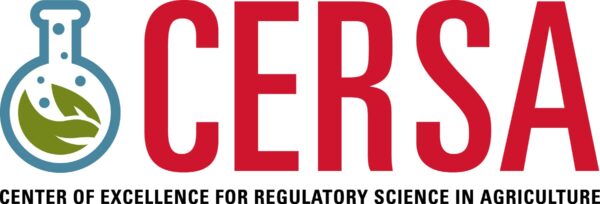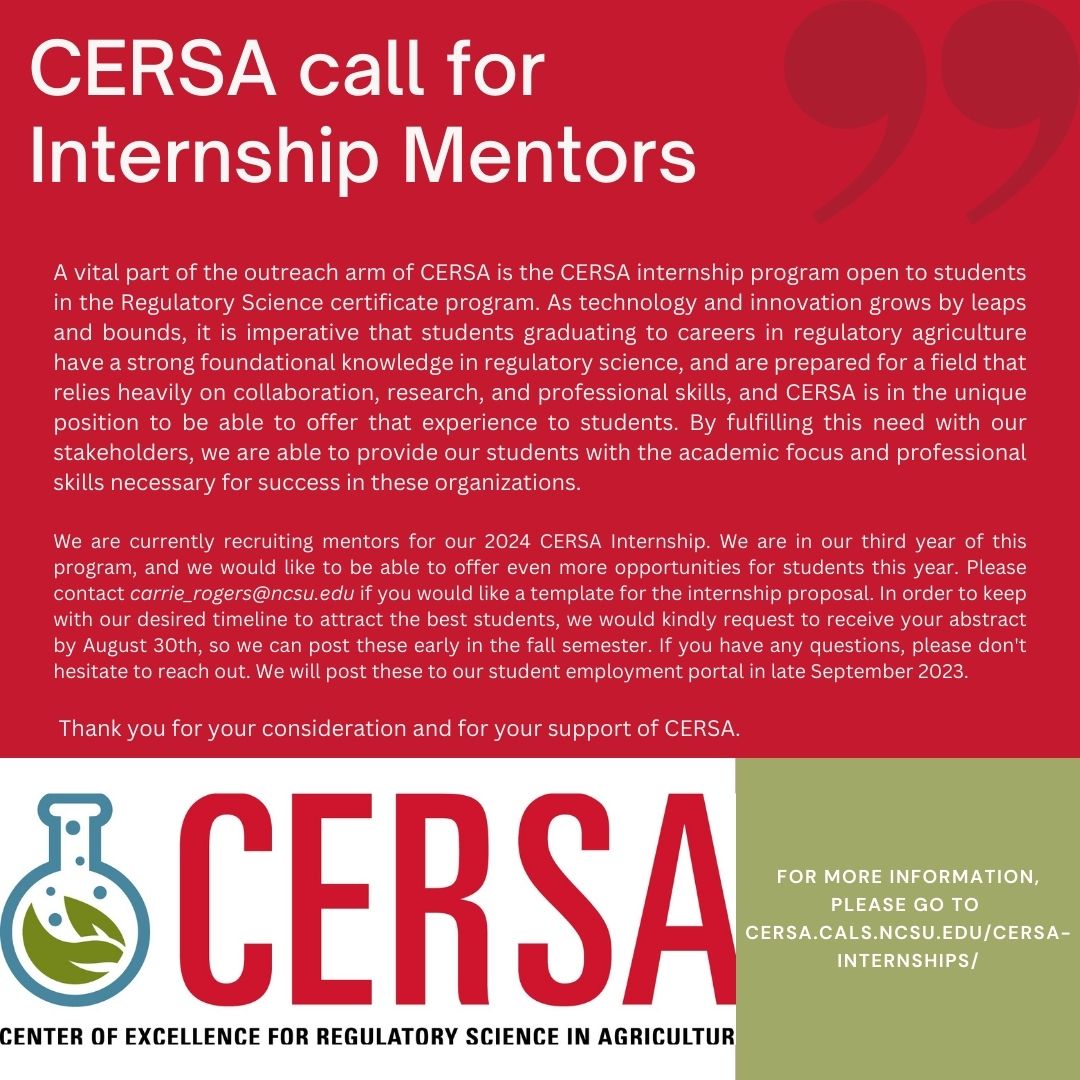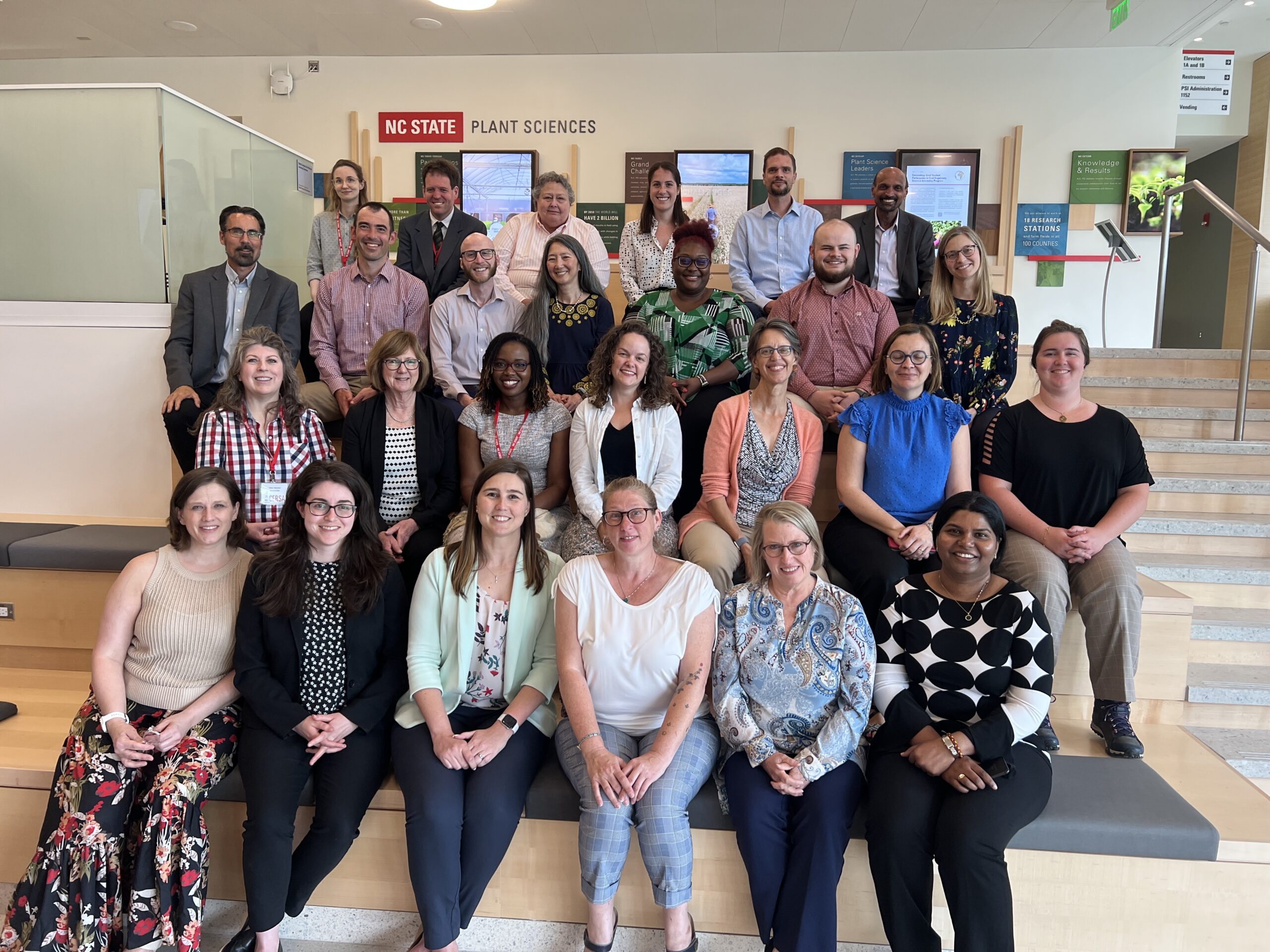News From Our Partners

News From the Center of Excellence for Regulatory Science in Agriculture
CALL FOR GRANT APPLICATIONS

The Translational Research Grant (TRG) program funds projects that explore commercial applications or initiate the early commercial development of university-held life sciences inventions. The technology must have the potential to solve a real-world problem as a commercial product in the life sciences sector.
Goals of the TRG program:
- Transform basic research discoveries into product-focused translational research development
- Generate data that addresses important product development milestones, addresses the concerns of potential licensees or investors, or otherwise de-risks the technology for a specific commercial application
- Enable strategic “go/no-go” decision-making regarding further technology development or pursuit of intellectual property protection
- Enable technology licensing efforts by the university
- Establish goal-oriented partnerships between university scientists, product development professionals, and key stakeholders
Proposals will be evaluated on the composition of the project team, including a project manager, and the setting of relevant, realistic, and achievable milestones during the product development tasks. See the guidelines for details.
Applicants must be researchers employed by North Carolina-based universities or nonprofit research institutes. Technical projects may be conducted at awardee institutions or outsourced to contract research organizations.
USDBC Welcomes NASDA to Crop Protection Alliance
In 2021, the U.S. Dry Bean Council (USDBC) launched the Crop Protection Action Coalition for Trade (CPACT) to address and prevent disruption of agricultural trade between the United States and key export markets due to low or zero tolerance maximum residue limits. The National Association of State Departments of Agriculture (NASDA) joined the coalition today to help ensure unfounded pesticide residue limits do not impede on U.S. food security and food production. This issue is of particular concern as some policymakers, notably in Europe, move away from science-based standards and towards zero or low tolerances in response to unscientific consumer and NGO advocacy pressures.

Ted McKinney, NASDA CEO (and former USDA Under Secretary for Trade and Foreign Agricultural Affairs) emphasized, “We are thrilled to join CPACT and contribute much needed drive from the agricultural sector to ensure the application of science-based
principles. We cannot afford any unfounded barriers to trade at this time of growing food insecurity. When we follow evidence-based science, we minimize disruptions to our food supply chain while maintaining high safety standards.”
CPACT is funded through USDA Foreign Agricultural Service’s Global Broad-based Initiatives program and is designed to create a coalition of like-minded organizations working together to tackle policy-based barriers to trade. CPACT is specifically targeted towards preventing the creation of zero or low tolerance maximum residue limits on crop protection tools such as herbicides and pesticides in key markets.
CPACT is designed to serve as a private sector agricultural/farmer voice to complement the U.S. Government’s own ambitious agenda to address restrictive MRL tolerances.
“We must have science-based tolerances that both protect human health, and allow for the appropriate use of crop protection tools so that growers and producers can continue to sustainably grow and ship the food that feeds the world. This is a completely achievable goal,” noted Rebecca Bratter, USDBC Executive Director.
USDBC is particularly concerned about the imposition of overly restrictive regulations in key export markets such as the European Union and Mexico. Clint Stoutenburg, a dry bean and multiple crop grower from Sandusky, Michigan and President of USDBC emphasized, “Farmers are the best stewards of the land; no one knows better, nor has more incentive to preserve the land and farming environment in order to protect resources for generations to come, but we need to utilize critical crop protection tools to grow sustainable and safe food and feed crops, especially in this challenging climate.”
CPACT is led by USDBC, but is a coalition of like-minded agricultural trade associations and currently includes, The US Dry Pean and Lentil Council, USA Rice Federation, Almond Board of California, and NASDA. Additional members are welcome to join at any time. For more information, please go to https://cropprotectionact.org/, or reach out to: Christian Foster at christian@northhg.com

Novozymes
Novozymes is recognized as an outstanding Safer Choice Innovator. In 2021, Novozymes added six ingredients to CleanGredients, a database of chemical ingredients pre-approved for use in Safer Choice-certified products. Novozymes supported 12 requests made by formulators and brand owners for certification of formulations by the Safer Choice program. The company also ran a survey of 1,000 consumers in the United States to gather data on consumer perception of Safer Choice as the most trustworthy certification on laundry products. Novozymes provided this information to formulators to help them understand how Safer Choice certification enables commercial success. To build awareness of the Safer Choice program, Novozymes promoted the Safer Choice program and their Safer Choice-certified products on its website and social media channels. Novozymes showed its commitment to EPA’s goal of addressing climate change by working to reduce carbon emissions. Novozymes has also committed to ensuring zero waste by 2030. The company is well on its way to this goal, with a recycling rate of non-biomass waste at 62% in 2021, compared to 48% in 2020. Safer Choice commends Novozymes work to manufacture safer chemicals in a sustainable manner.


